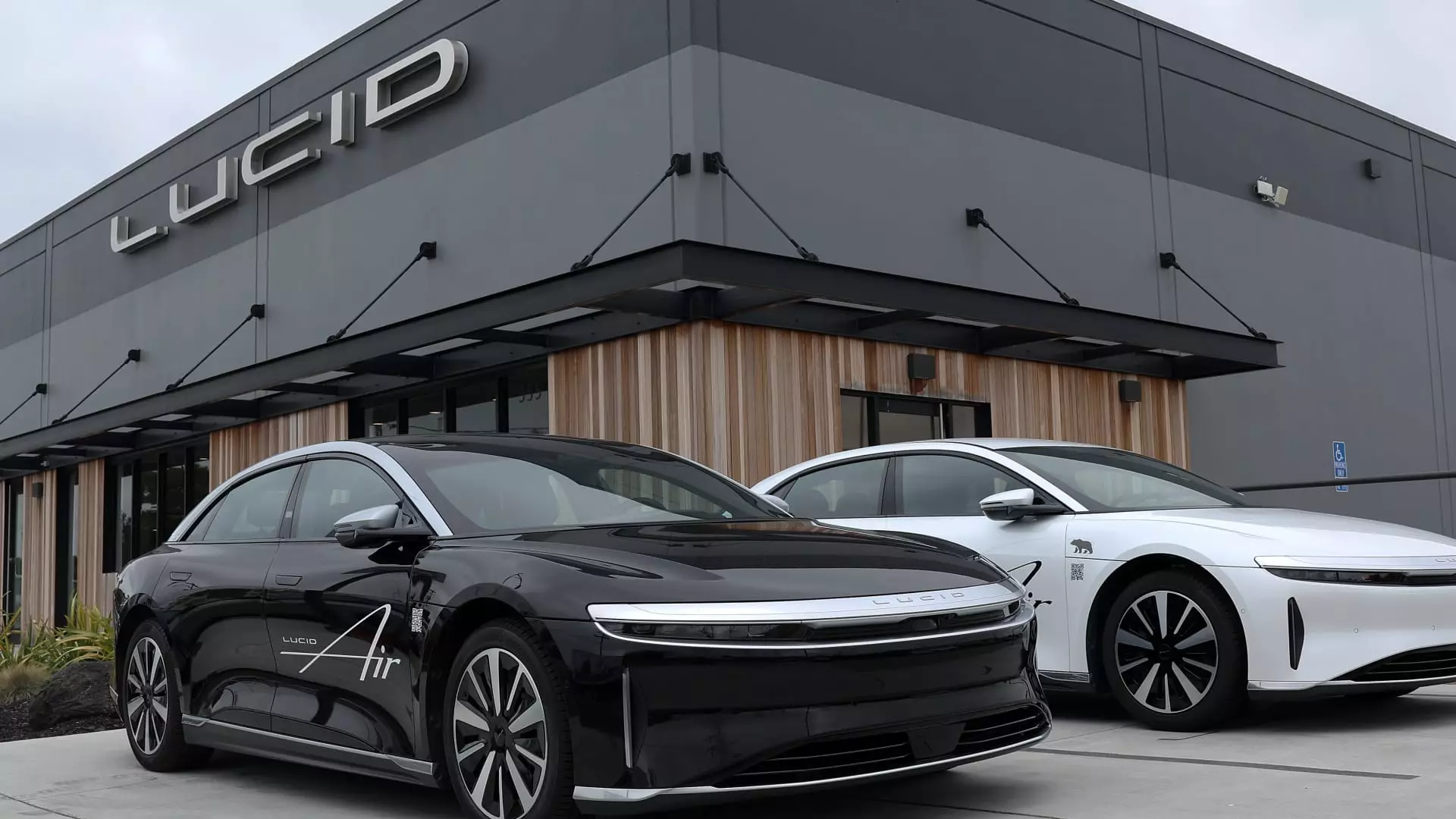Lucid Group has recently unveiled its fourth-quarter delivery results, showcasing a record high for the number of vehicles delivered. During this period, the electric vehicle (EV) manufacturer successfully produced 9,029 units and delivered 10,241 cars, marking a significant operational achievement. The fourth quarter alone accounted for the production of 3,386 units and the delivery of 3,099 vehicles. This marks a substantial year-over-year growth with a 71% increase in deliveries and a modest 7% rise in production compared to the previous year.
However, despite these promising figures, the stock market response has been problematic. Lucid’s shares plummeted approximately 28% last year, reflecting investor skepticism amid slower-than-expected EV adoption rates and the company’s substantial cash burn. This paradox illustrates a crucial point in the EV industry: while production metrics can be strong, market performance does not always align, primarily driven by investor sentiment and overall economic conditions.
Financially, Lucid Group has faced hurdles that may concern investors. The company ended the third quarter with a liquidity figure of $5.16 billion, a number that excludes a surprising $1.75 billion stock offering unveiled in October. This significant capital raise pointed to potential cash flow challenges and caught many investors off-guard. The stock offer may have been a strategic move to secure necessary funds, but it also raised alarms about incoming cash management strategies and operational sustainability.
Investors now watch closely as the company gears up for 2024, a year it targets for producing over 9,000 vehicles. These aggressive production goals seem ambitious and have raised questions regarding their feasibility. With the market becoming increasingly crowded with competitors both established and emerging, Lucid’s ability to scale operations efficiently will be put to the test.
Lucid’s primary offering remains the Air sedan, which it initiated deliveries for in late 2021. However, since its launch, the competitive EV landscape has intensified. Other manufacturers are ramping up their production capabilities and unveiling innovative models that are rapidly gaining market share. As a response, Lucid is preparing to introduce a new SUV, diversifying its product line to capture a broader customer base. This strategic pivot could potentially enhance its market position but also requires substantial investment and strategic execution to succeed.
While Lucid Group’s fourth-quarter delivery numbers project an optimistic growth trajectory, the accompanying market dynamics and the company’s financial maneuvers paint a more complex picture. As it approaches the next fiscal year, Lucid faces both a critical opportunity and a significant challenge: how to convert operational achievements into sustainable investor confidence and market stability. The forthcoming financial results, scheduled for February, will provide further insights and set the stage for Lucid’s future direction. The journey is far from simple, yet it remains pivotal for stakeholders and the broader EV sector.

